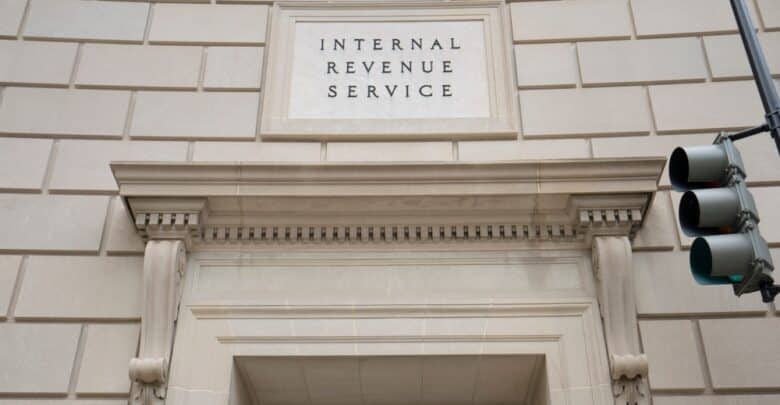IRS Considers Staking Rewards as Taxable Income in New Revenue Ruling

A recent publication by the US revenue regulators Internal Revenue Service (IRS) revealed that the staking rewards generated from crypto activities would be taxable in the new gross income legislation. Under the new rules titled “Revenue Ruling 2023-14” the IRS outlined the assets classified as gross income, which will be taxed.
Apart from property, the IRS stated that staking rewards on cryptos, money, and other services will be recognized as gross income. It implies that the staking rewards will be reported in the financial report as gross income.
IRS New Revenue Ruling
Gross income refers to assets generated from an investment before the deduction of taxes or any other liability. The IRS report signaled that crypto investors would be required to report on their taxpayer’s annual income statement the returns from crypto stakings completed on the proof-of-stake (PoS) blockchains.
According to the report, when an investor stakes crypto assets on the PoS consensus to receive more cryptos as rewards after validation, the IRS team will require the taxpayers to report the rewards in the gross income yearly.
The report mentioned that the staking process involves locking users’ assets to support and maintain the performance of the blockchain network. Occasionally, the staking process is conducted on the PoS consensus, which supports rewarding the stakers.
Besides including the crypto staking on the gross income report, the IRS team outlined the formula for computing individual gross income. The IRS advised investors to estimate the fair market value for crypto rewards when acquiring the assets. After assessing the value, the IRS added that the figure should be captured on the taxpayer’s annual income tax report.
Race to Stop Tax Cheats
The IRS highlighted that the new ruling would apply to taxpayers staking their assets using cash and other crypto payments. The revenue regulators noted that some investors staked their assets on the PoS consensus network through crypto exchanges.
News concerning the IRS’ revenue ruling has been lapped up with speculation from the crypto community. In a Twitter statement shared on August 1, a legal expert at Fried Frank Jason Schwartz, recounted an assumption made by tax practitioners on treating consensus-layer staking rewards similar to Bitcoin mining rewards.
The legal practitioner labeled the IRS revenue ruling as disappointing. He explained that effective tax laws require a primary taxpayer such as an employee. Schwartz restated that the government only deducts taxes from the returns or profit from selling a service or product.
He recognized that most of the hyped treasure trove are classified in the deferred payment category. A deferred payment is an agreement between the debtor and the creditor to pay for a product on a set date.
Schwartz stated that previously the investors who exercised dominion and control of an asset that no one owned; were given ample time to sell their products before paying taxes.
The legal practitioner confirmed that investors in crops, livestock, and goods were taxed after the sale of the product. Unliked the traditional business activities Schwartz confessed that the blockchain network was not a taxpayer.
US Regulatory Pressure on Crypto Assets Mounts
Besides introducing new tax regulations, the IRS has been taking strategic actions to address tax cheats in the US. At the beginning of July, the revenue regulators launched investigations on wealthy crypto investors and fund managers for violating Puerto Rico tax breaks.
In the report, the IRS suspected that the American crypto investors provided misleading information to take advantage of the tax break in Puerto Rico. Under the Puerto Rico tax break, the qualified candidates are granted 100% exemption on dividends.
The eligible investors are exempted from 60% of municipal taxes. And the tax break regime excludes investors from remitting federal taxes from income generated from a Puerto Rico-based investment.
Notably, the suitability of the Puerto Rico tax break regulation have prompted crypto investors to lie about their residency status and income to be benefit from the program. The IRS affirmed plans to” tightening the noose” and bring down American investors violating the Puerto Rico tax break.
The IRS’s new revenue ruling was announced when the US crypto sector was battling regulatory pressure ignited by the Securities and Exchange Commission (SEC). Lately, the SEC has filed multiple lawsuits against token issuers and exchanges for selling unregistered crypto assets.
In June, the SEC filed charges against Coinbase for offering crypto-staking services that violated securities laws. Months before the Coinbase lawsuit, the agency had charged Kraken with similar charges. In this case, Kraken faced a legal action that resulted in the settlement of court fines amounting to $30 million.
Editorial credit: Tada Images / Shutterstock.com
Tokenhell produces content exposure for over 5,000 crypto companies and you can be one of them too! Contact at [email protected] if you have any questions. Cryptocurrencies are highly volatile, conduct your own research before making any investment decisions. Some of the posts on this website are guest posts or paid posts that are not written by Tokenhell authors (namely Crypto Cable , Sponsored Articles and Press Release content) and the views expressed in these types of posts do not reflect the views of this website. CreditInsightHubs is not responsible for the content, accuracy, quality, advertising, products or any other content or banners (ad space) posted on the site. Read full terms and conditions / disclaimer.





